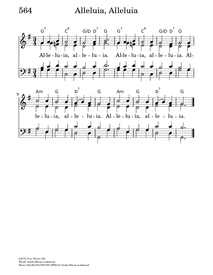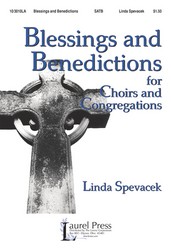- |
User Links
Alleluia

Alleluia
Published in 481 hymnalsAudio files: MIDI, Recording
Representative Text
Alleluia! Alleluia!
Alleluia! Alleluia!
Source: Sing a New Creation: a supplement to Common Praise (1998) #190
Text Information
| First Line: | Alleluia |
| Meter: | Irregular |
| Source: | Traditional Liturgical text |
| Language: | English; German |
| Refrain First Line: | Alleluia |
| Copyright: | Public domain |
- (hymns)
- (hymns)
- (hymns)
- (hymns)
- (hymns)
- (hymns)
- (hymns)
- (hymns)
- (hymns)
- (hymns)
- (hymns)
- (hymns)
- (hymns)
- (hymns)
- (hymns)
- (hymns)
- (hymns)
- (hymns)
- (hymns)
- (hymns)
- (hymns)
- (hymns)
- (hymns)
- (hymns)
- (hymns)
- (hymns)
- (hymns)
- (hymns)
- (hymns)
- (hymns)
- (hymns)
- (hymns)
- (hymns)
- (hymns)
- (hymns)
- (hymns)
- (hymns)
- (hymns)
- (hymns)
- (hymns)
- (hymns)
- (hymns)
- (hymns)
- (hymns)
- (hymns)
- (hymns)
- (hymns)
- (hymns)
- (hymns)
- (hymns)
- (hymns)
- (hymns)
- (hymns)
- (hymns)
- (hymns)
- (hymns)
- (hymns)
- (hymns)
- (hymns)
- (hymns)
- (hymns)
- (hymns)
- (hymns)
- (hymns)
- (hymns)
- (hymns)
English
- A Teaching Hymnal: ecumenical and evangelical #3
- African American Heritage Hymnal #643
- African Methodist Episcopal Church Hymnal #620
- Agape: songs of hope and reconciliation #7
- Ancient and Modern: hymns and songs for refreshing worship #374
- Break Forth in Joyous Song: a collection of hymns and liturgical songs #28
- Breaking Bread (Vol. 39) #939
- Breaking Bread (Vol. 39) #920
- Breaking Bread (Vol. 39) #900
- Breaking Bread (Vol. 39) #861 10 shown out of 277
Esperanto
French
German
- Antwort Finden in alten und neuen Liedern, in Worten zum Nachdenken und Beten: evangelisches Gesangbuch (Bayern, Mitteldeutschland, Thüringen) #181h
- Antwort Finden in alten und neuen Liedern, in Worten zum Nachdenken und Beten: evangelisches Gesangbuch (Bayern, Mitteldeutschland, Thüringen) #181d
- Antwort Finden in alten und neuen Liedern, in Worten zum Nachdenken und Beten: evangelisches Gesangbuch (Bayern, Mitteldeutschland, Thüringen) #181b
- Antwort Finden in alten und neuen Liedern, in Worten zum Nachdenken und Beten: evangelisches Gesangbuch (Bayern, Mitteldeutschland, Thüringen) #181e
- Antwort Finden in alten und neuen Liedern, in Worten zum Nachdenken und Beten: evangelisches Gesangbuch (Bayern, Mitteldeutschland, Thüringen) #181c
- Antwort Finden in alten und neuen Liedern, in Worten zum Nachdenken und Beten: evangelisches Gesangbuch (Bayern, Mitteldeutschland, Thüringen) #181a
- Deutsches Liederbuch: Sammlung von Chorälen und Liedern für Schule und Haus #170
Hebrew
Latin
Polish
- Śpiewnik Ewangelicki: Codzienna modlitwa, pieśń, medytacja, nabożeństwo #348
- Śpiewnik Ewangelicki: Codzienna modlitwa, pieśń, medytacja, nabożeństwo #347g
- Śpiewnik Ewangelicki: Codzienna modlitwa, pieśń, medytacja, nabożeństwo #347e
- Śpiewnik Ewangelicki: Codzienna modlitwa, pieśń, medytacja, nabożeństwo #347c
- Śpiewnik Ewangelicki: Codzienna modlitwa, pieśń, medytacja, nabożeństwo #347a
- Śpiewnik Ewangelicki: Codzienna modlitwa, pieśń, medytacja, nabożeństwo #347h
- Śpiewnik Ewangelicki: Codzienna modlitwa, pieśń, medytacja, nabożeństwo #347f
- Śpiewnik Ewangelicki: Codzienna modlitwa, pieśń, medytacja, nabożeństwo #347d
- Śpiewnik Ewangelicki: Codzienna modlitwa, pieśń, medytacja, nabożeństwo #347b
Spanish
- Bendigo al Señor: cánones, ostinatos, aclamacines y cantos de taizé #15a
- Cáliz de Bendiciones: himnario Discipulos de Cristo #68
- Cantos del Pueblo de Dios = Songs of the People of God (2nd ed.) #213
- Cantos del Pueblo de Dios = Songs of the People of God (2nd ed.) #265
- Cantos del Pueblo de Dios = Songs of the People of God (2nd ed.) #220
- Cantos del Pueblo de Dios = Songs of the People of God (2nd ed.) #238
- Celebremos Su Gloria #40
- Flor y Canto #578
- Flor y Canto #613
- Flor y Canto #611 10 shown out of 66
Welsh
Notes
"Alleluia" is the Greek spelling of a Hebrew expression, "Hallelu Yah[weh]," which simply means "praise the Lord." That phrase is found in the Old Testament as a frame around a number of the psalms (Ps. 103-106; 146-150) and in the New Testament in Revelation 19: 1-6. In Christian liturgical use "alleluia" is usually sung in conjunction with one of the Scripture readings as an acclamation (except during Lent). It is also used during Easter and appears as a phrase in many hymns. Some musical settings of "alleluia" are overtly jubilant; for example, George F. Handel's famous "Hallelujah" chorus in The MessiahPsalter Hymnal (see the index of first lines).
Liturgical Use:
As an independent acclamation traditionally with the reading of the gospel, but appropriate at many other times in worship; as a frame around another psalm or hymn, for example Psalm 70 (sing either "alleluia" or "maranatha").
--Psalter Hymnal Handbook, 1987
Timeline
Arrangements
Piano/OrganMore Piano/Organ... |  |
ChoralMore Choral... |  |
PowerPointMore PowerPoint... |  |
Media
- Audio recording from Church Hymnary (4th ed.) #767
- Audio recording from Common Praise (1998) #324
- Audio recording from Glory to God: the Presbyterian Hymnal #586
- Audio recording from Glory to God: the Presbyterian Hymnal #587
- Audio recording from Glory to God: the Presbyterian Hymnal #588
- Audio recording from Glory to God: the Presbyterian Hymnal #590
- MIDI file from The Gospel Message Choir #13
- Audio recording from Hymns of Glory, Songs of Praise #767
- Audio recording from Lift Up Your Hearts: psalms, hymns, and spiritual songs #198
- Audio recording from Lift Up Your Hearts: psalms, hymns, and spiritual songs #564
- MIDI file from Psalter Hymnal (Gray) #639
- Audio recording from Small Church Music #4797
- Audio recording from Small Church Music #4797
- Audio recording from Small Church Music #4797
- Audio recording from Small Church Music #4797
- Audio recording from The United Methodist Hymnal #486
- MIDI file from With Heart and Voice: songs for all God's children #159


 My Starred Hymns
My Starred Hymns


